03 de março de 2026
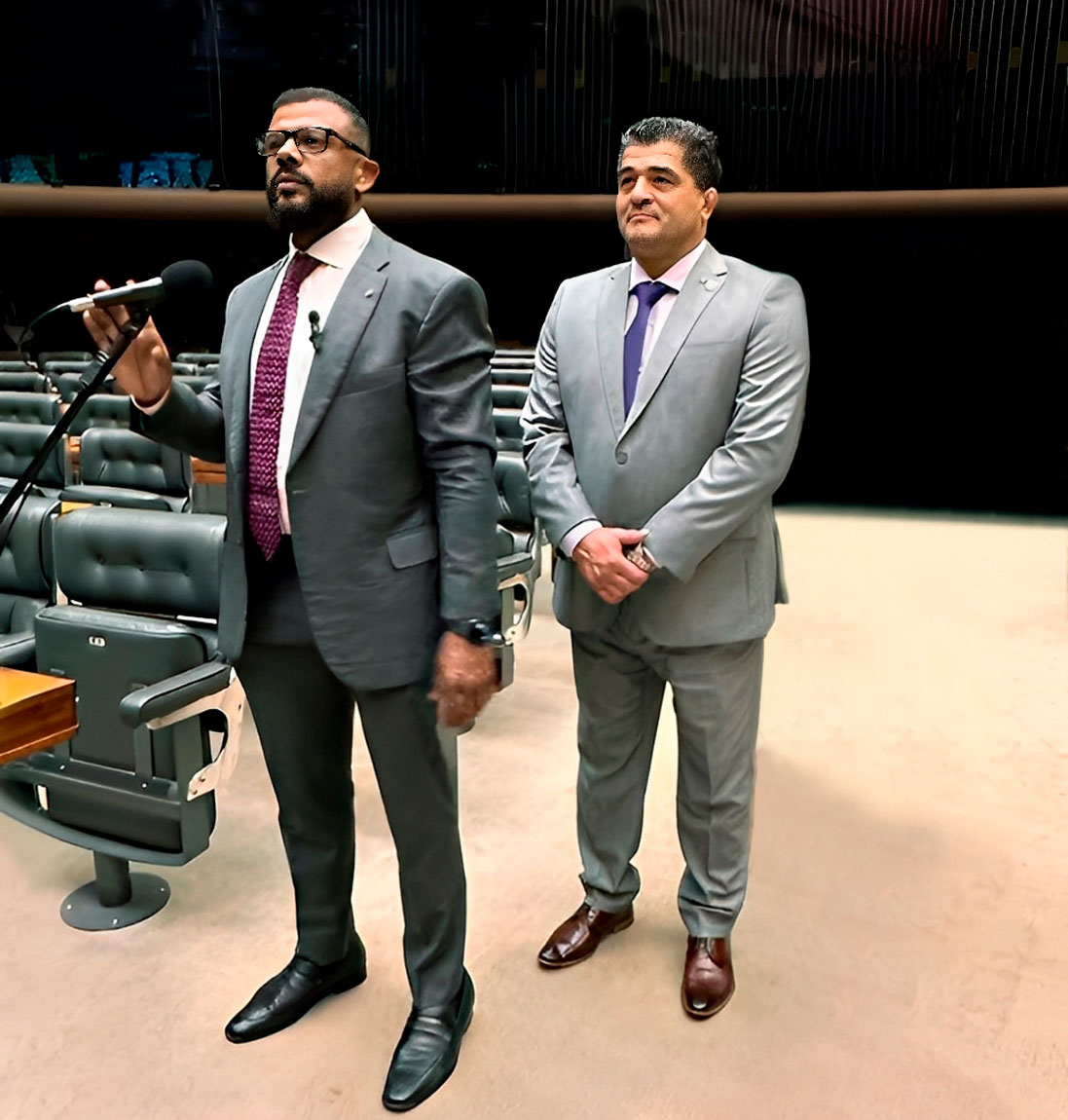
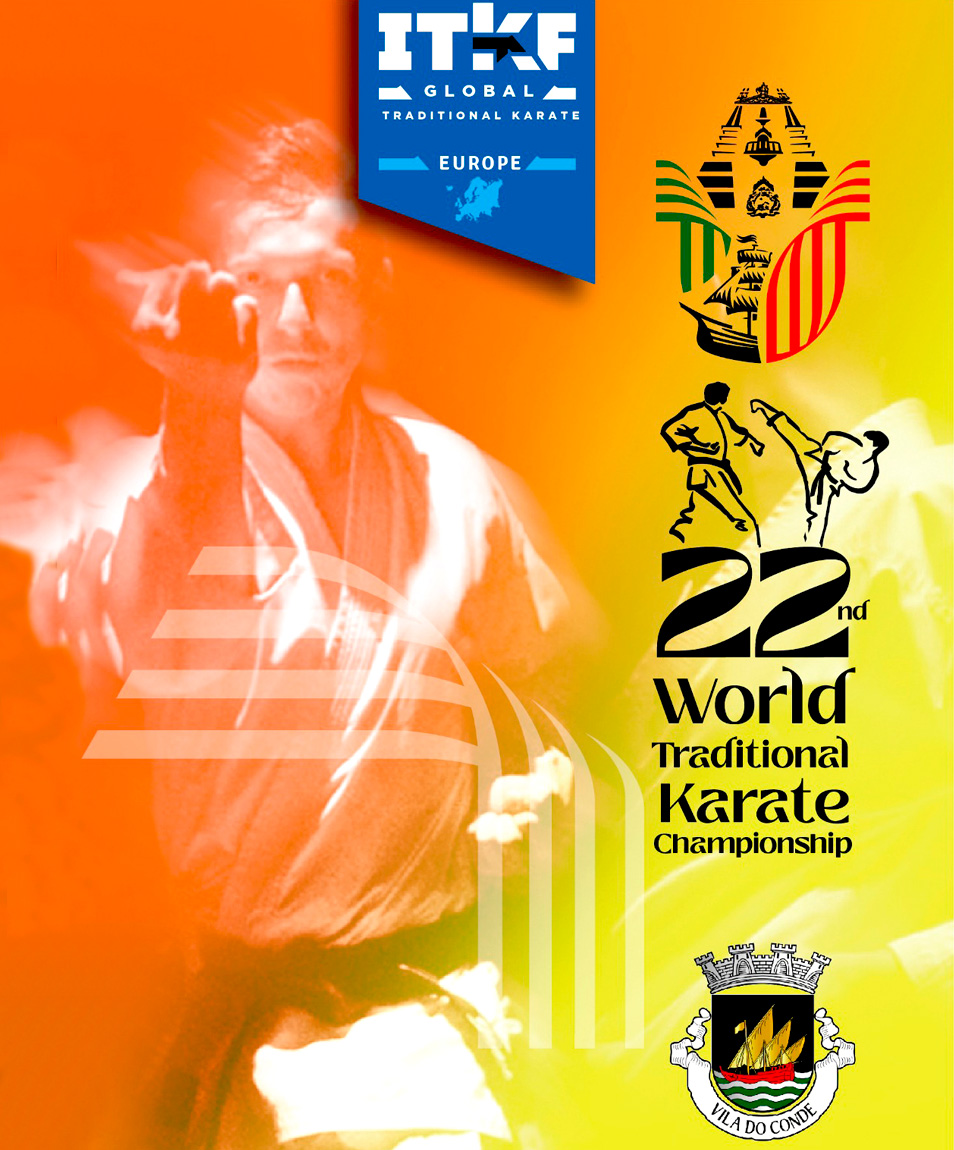 Over 800 karatekas will compete for medals at the 22nd Traditional Karate World Championship in Vila do Conde © ITKF
Over 800 karatekas will compete for medals at the 22nd Traditional Karate World Championship in Vila do Conde © ITKF
Held every two years, the World Championship of the International Traditional Karate Federation (ITKF) is a unique competition that preserves the tradition of Budō karate, emphasizing the socio-educational aspects of the sport. Founded by Hidetaka Nishiyama in the early 1990s, the ITKF’s primary mission is to promote traditional karate in its purest form.
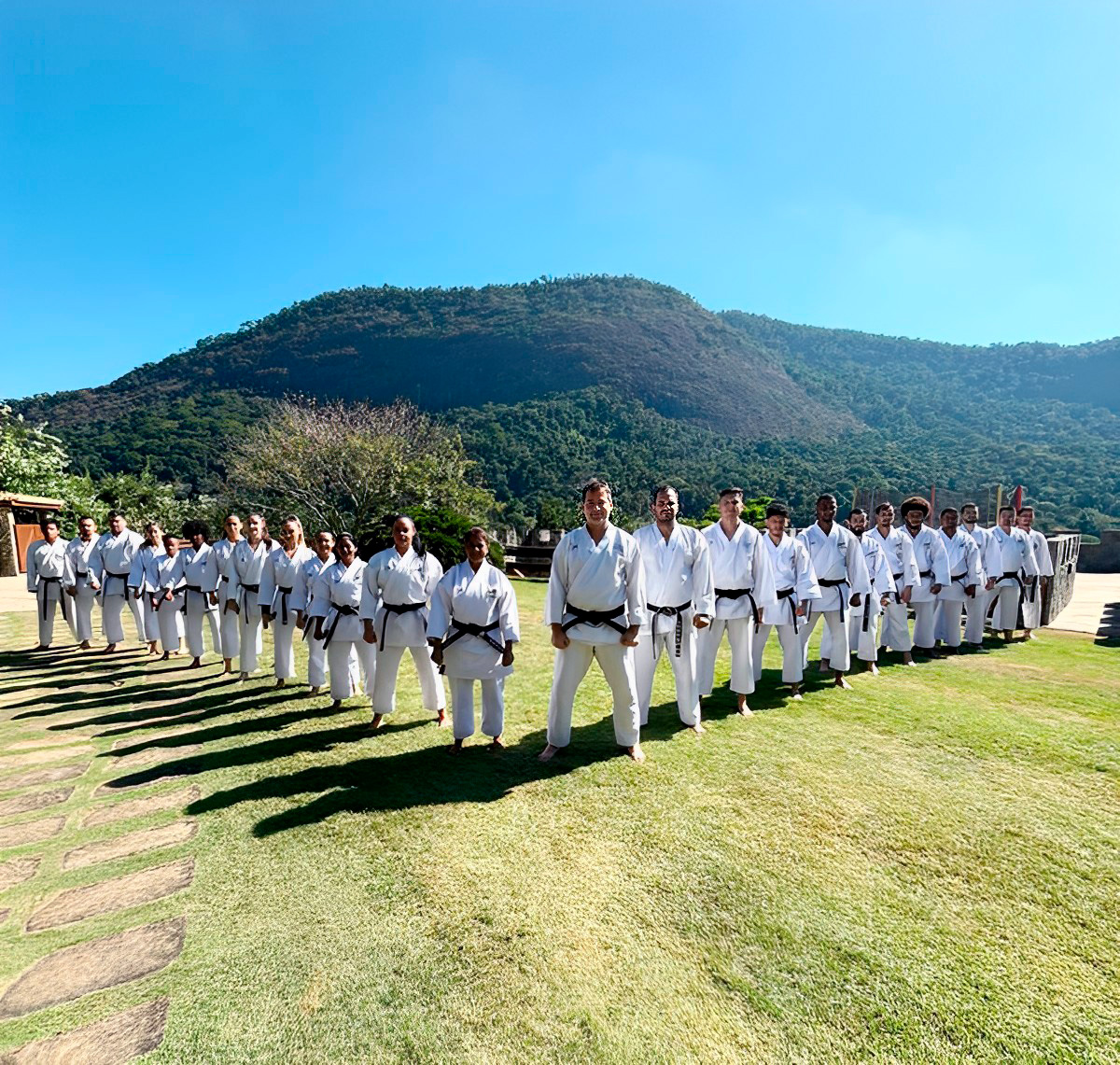
Training session of the Brazilian national team © Archive
The previous edition, held in Slovenia in 2022, featured over 700 karatekas from 30 countries across Africa, Asia, Oceania, Europe, and the Americas. For the 2024 championship in Vila do Conde, Portugal, the expectation is to surpass 800 athletes from 40 countries, confirming the organization’s growth after the passing of its founder. Today, the ITKF is focused on a promising future, grounded in tradition, innovation, and human development.
Budō spoke with coaches from five national teams who shared their expectations for the 22nd Traditional Karate World Championship and detailed their teams’ preparations for the major event in Vila do Conde.
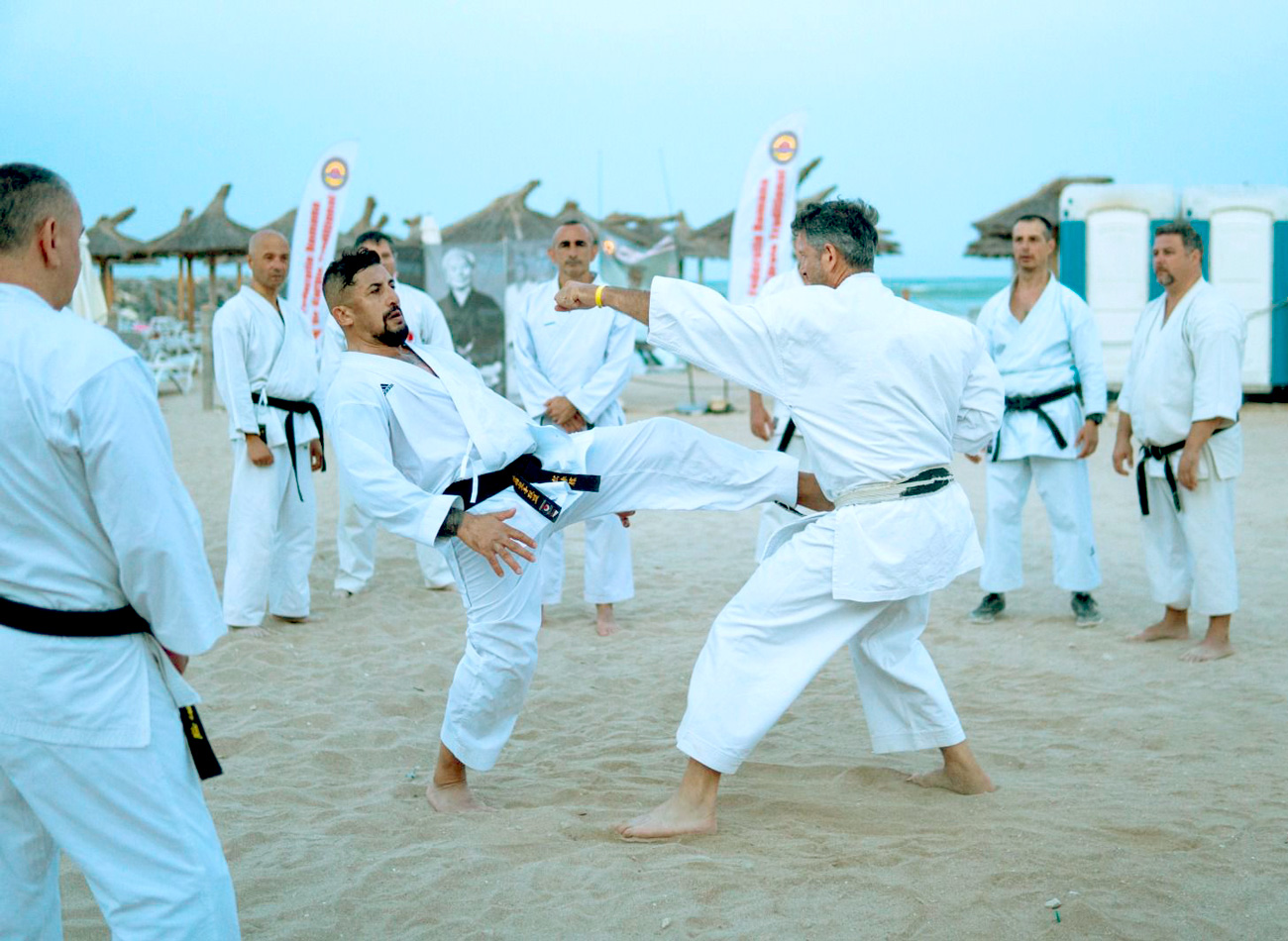
Training session of the Romanian national team © Archive
Coaches and leaders from Portugal, Brazil, Egypt, Romania, and Armenia presented different approaches to their teams’ preparations. However, all of them, without exception, expressed total confidence in the ability of the Traditional Budō Karate Federation of Portugal to organize an excellent event. They believe that the FBTP will welcome the delegations with open arms and will be responsible for delivering a high-level competition.
The Portuguese traditional karate team faces the upcoming October World Championship with high expectations and a heightened sense of responsibility, given that the competition will be held on home soil. At the same time, the team recognizes the unique opportunity to showcase the technical quality and discipline of its athletes to the world, despite the pressure of performing at home.
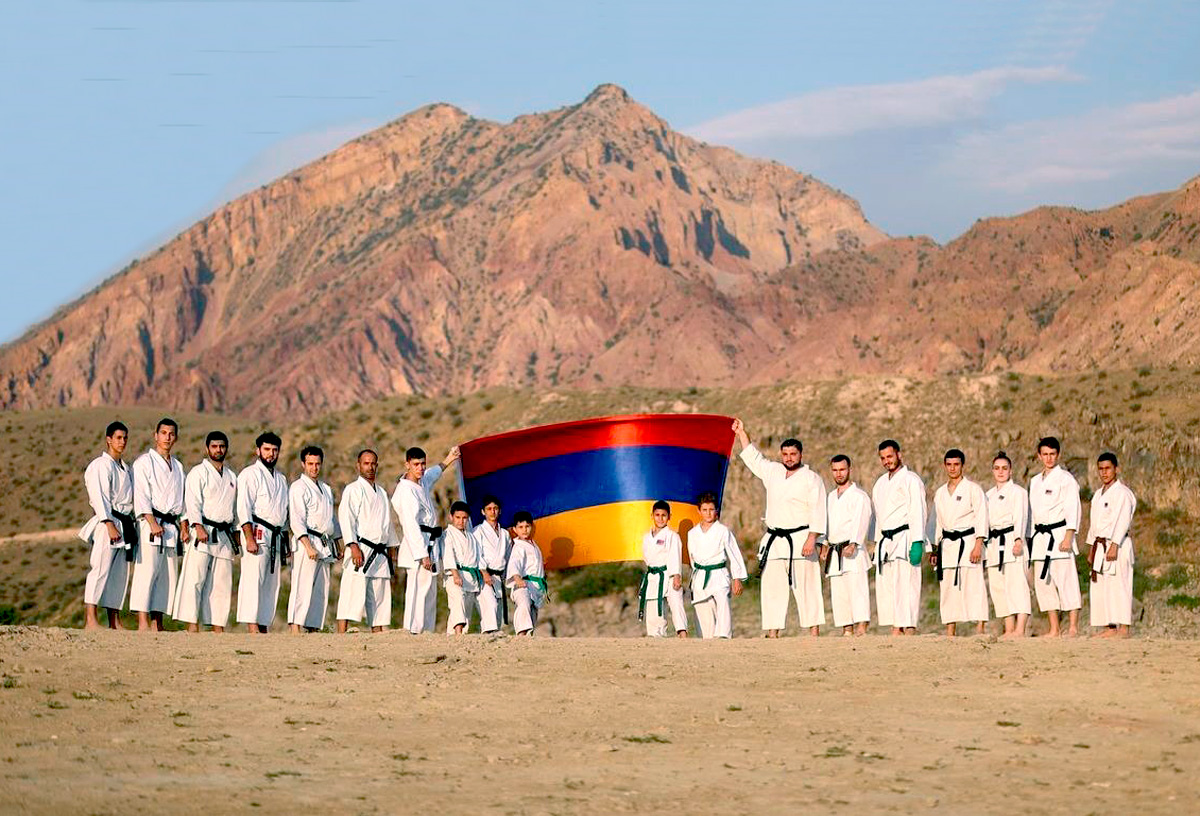
Training session of the Armenian national team © Archive
“This is a golden opportunity to raise the competitive level of our team and inspire new practitioners, consolidating the importance of this martial art within the national sports landscape,” says Tozé Castro Lopes (Roku-dan / 6th Dan), coach of the Portuguese team.
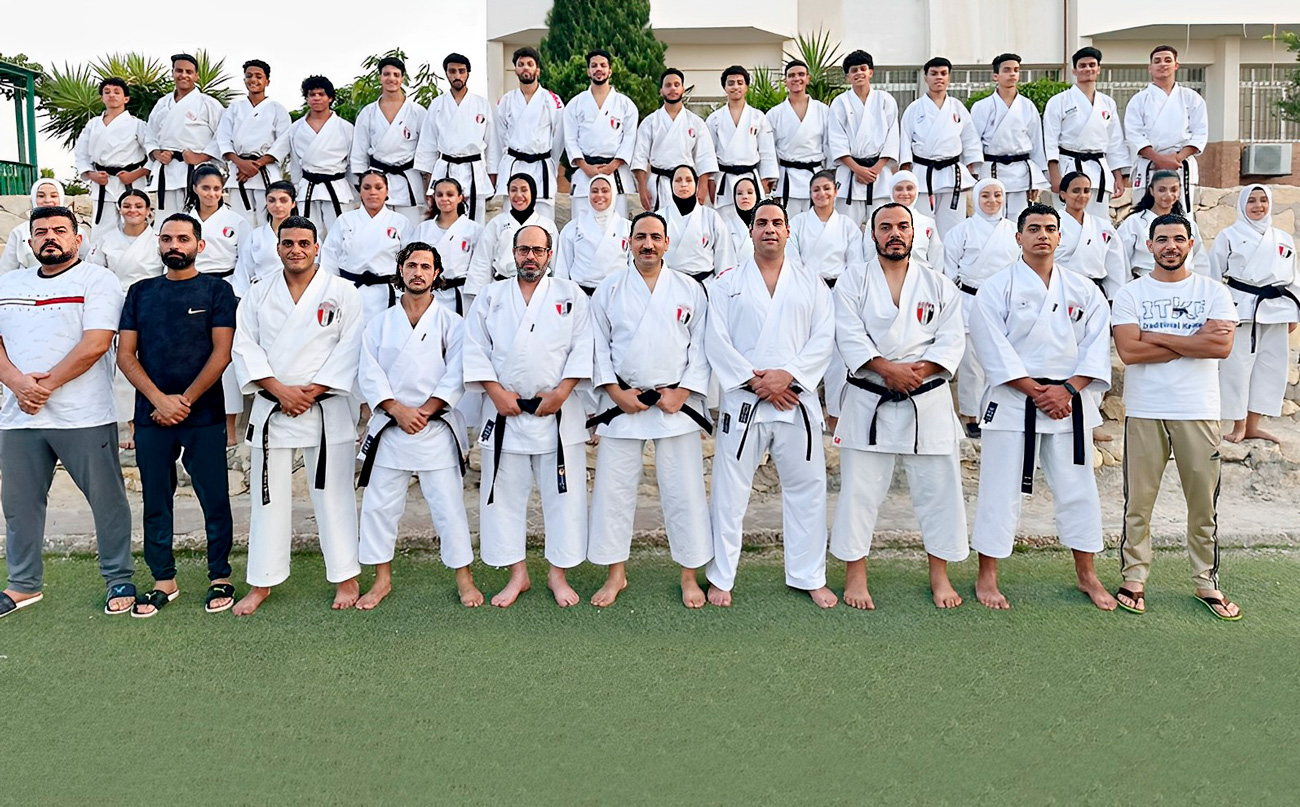
Technical staff and athletes from Egypt © Archive
The goal of the Portuguese team is to surpass the sixth place achieved at the World Championship in Slovenia. But with determination and collective spirit, they are aiming even higher. “To this end, the team is training intensively, adjusting strategies, and refining techniques to face top-level opponents with the confidence of those aiming for the podium,” adds Tozé. Approximately 40 karatekas from more than a dozen clubs affiliated with the FBTP are part of the Portuguese team.
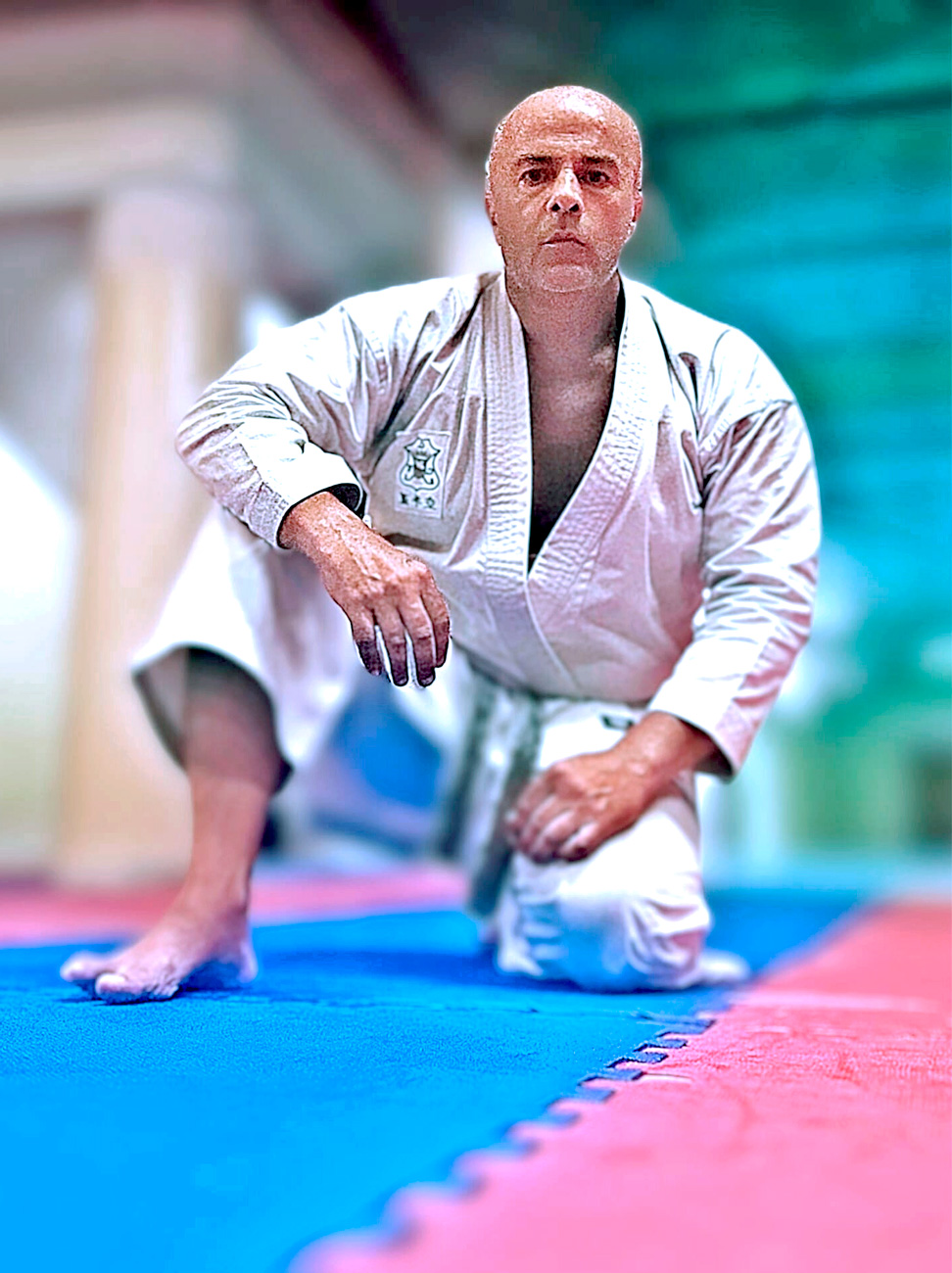
Tozé Castro Lopes, coach of the Portuguese national team © Archive
The fact that Vila do Conde is hosting an event of this magnitude is a source of pride for the Portuguese people, but it also brings a huge responsibility to ensure that all the needs of participants and the public are met efficiently and without flaws. “Despite the valuable institutional support from the City Council, the logistical challenges are many and require efficient management to ensure everything goes as expected,” says Tozé.
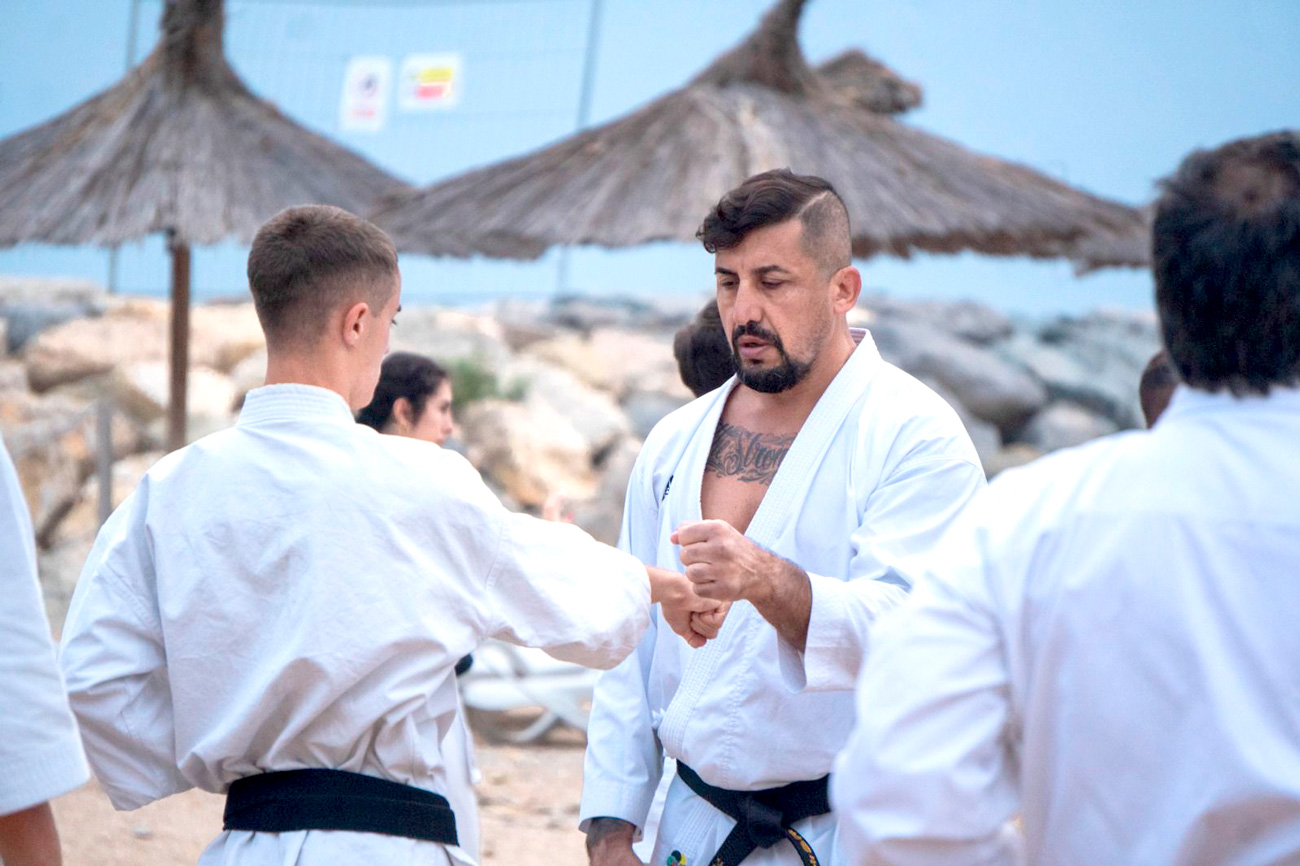
Cornel Musat coaches an athlete from Romania © Archive
This task involves everything from ensuring adequate infrastructure to accommodate hundreds of athletes, coaches, referees, and spectators, to coordinating the transport and accommodation for all international delegations.
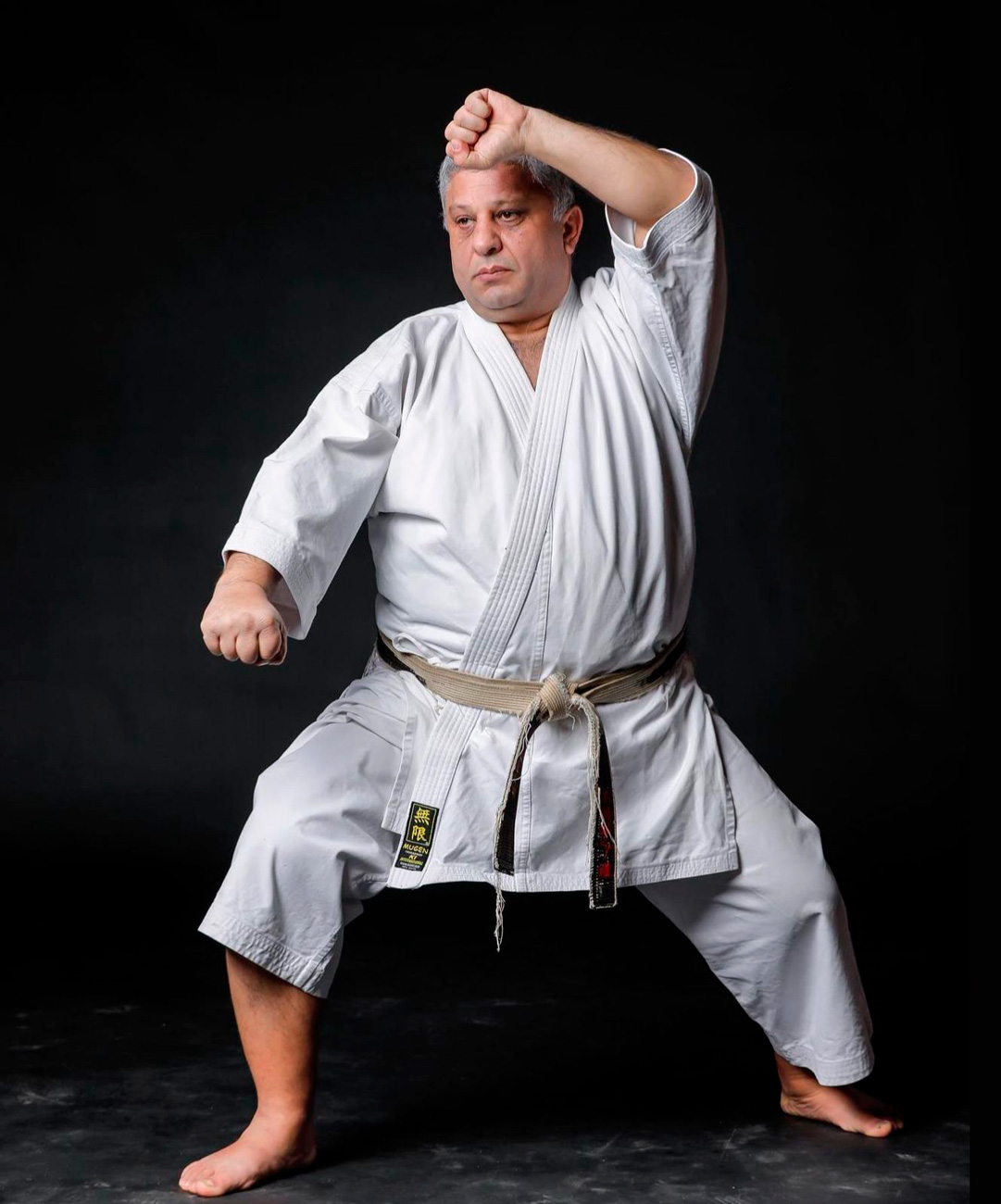
Suren Mathevosyan, founding president of the Traditional Karate-Do Federation of Armenia (FKTA) © Archive
Preparing the competition venues, with all the specific requirements of traditional karate, is another significant challenge. “The logistics of communication, coordinating competition schedules, managing volunteers, and complying with all safety standards are factors that require constant attention,” observes the Portuguese coach, who at 55 years old, has 48 years of karate practice under his belt.
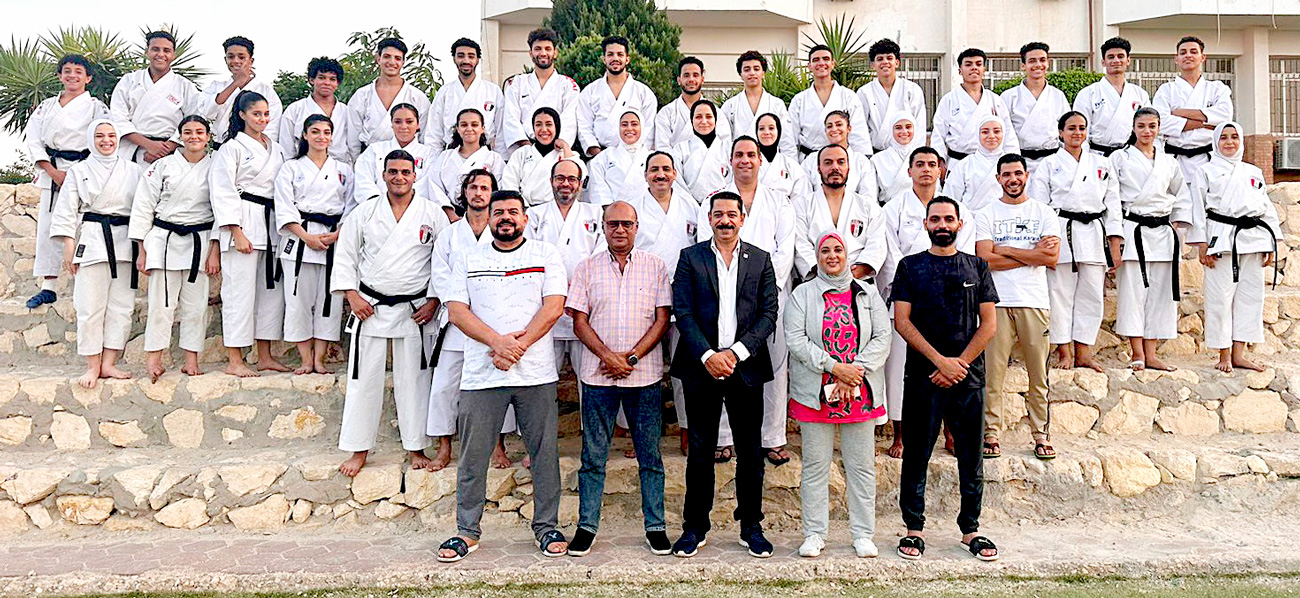
Leaders, technical staff, and athletes from Egypt © Archive
However, he believes the World Championship in Vila do Conde will be a success, thanks to the commitment of the City Council and the efforts of the organizers, both from FBTP and the Ginásio Clube Vilacondense.
“My minimum goal is to become the overall world champion in Portugal once again,” says Ricardo Buzzi (Go-dan / 5th Dan by ITKF and CBKT), coach of the Brazilian national team, with confidence. But that’s not all: he aims to win even more titles than those obtained in Slovenia. “We are going with a stronger team, given the longer preparation time and better organization we had this year.”
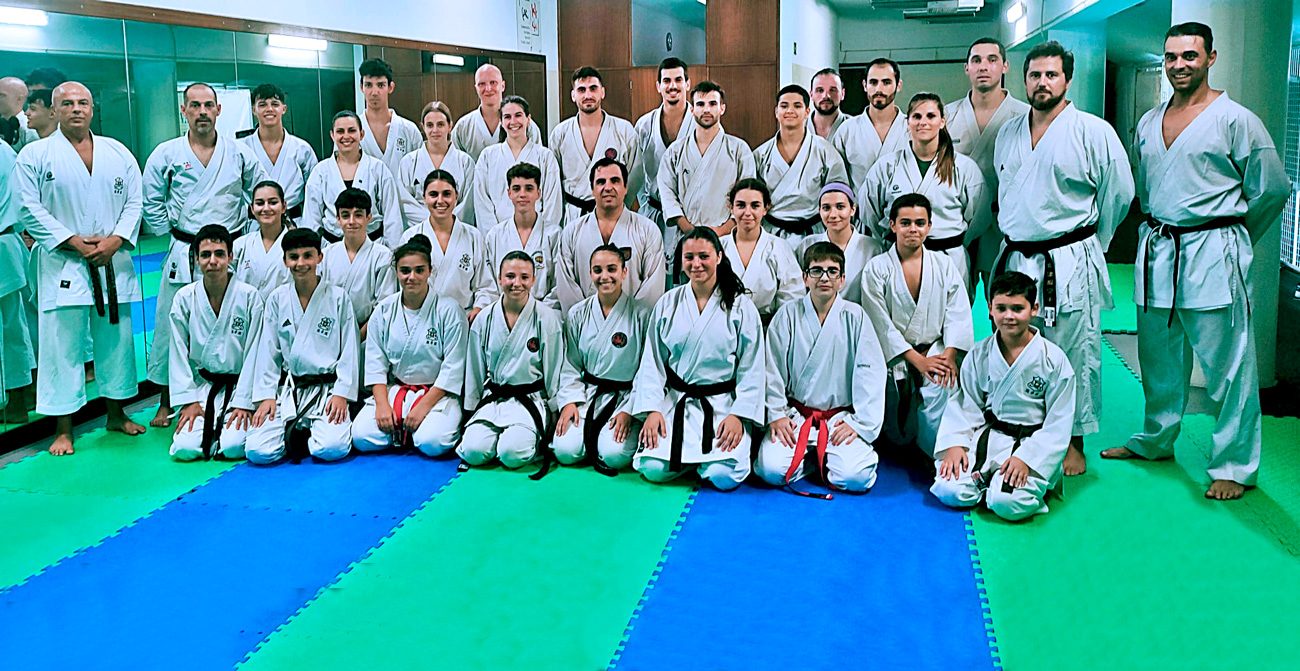
Part of the Portuguese national team © Archive
The Brazilian Traditional Karate-dô Confederation (CBKT) selected its athletes a year in advance, an unprecedented move. This allowed the coaching staff – composed of senseis Eckner Cardoso do Nascimento (BA) and Arlene Amarante (MT), along with physical trainers, psychologists, and physiotherapists – to better plan the training program.
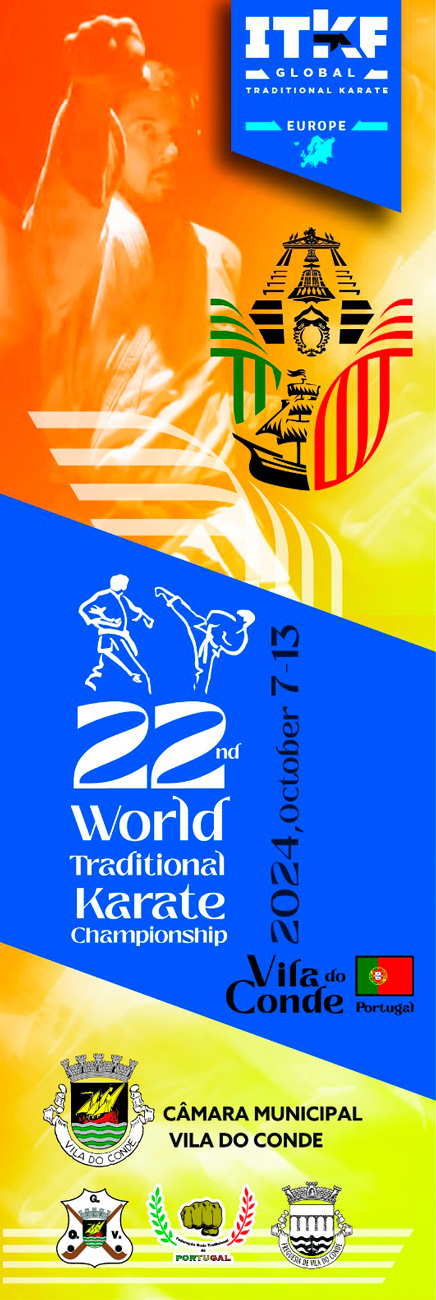
In May, there was a first gathering in Rio de Janeiro, supported by the Goshin-Dô Kobukan Institute of Rio de Janeiro (IGKRJ) and the national team sponsor, Dankana Kimonos, with almost a week of in-person training. “Now we’ll have another week of preparation, also in Rio, for adult athletes and those aged 18 to 20,” explains Buzzi. The Brazilian team expects to bring around 50 athletes to Vila do Conde, with arrival planned for October 8th.
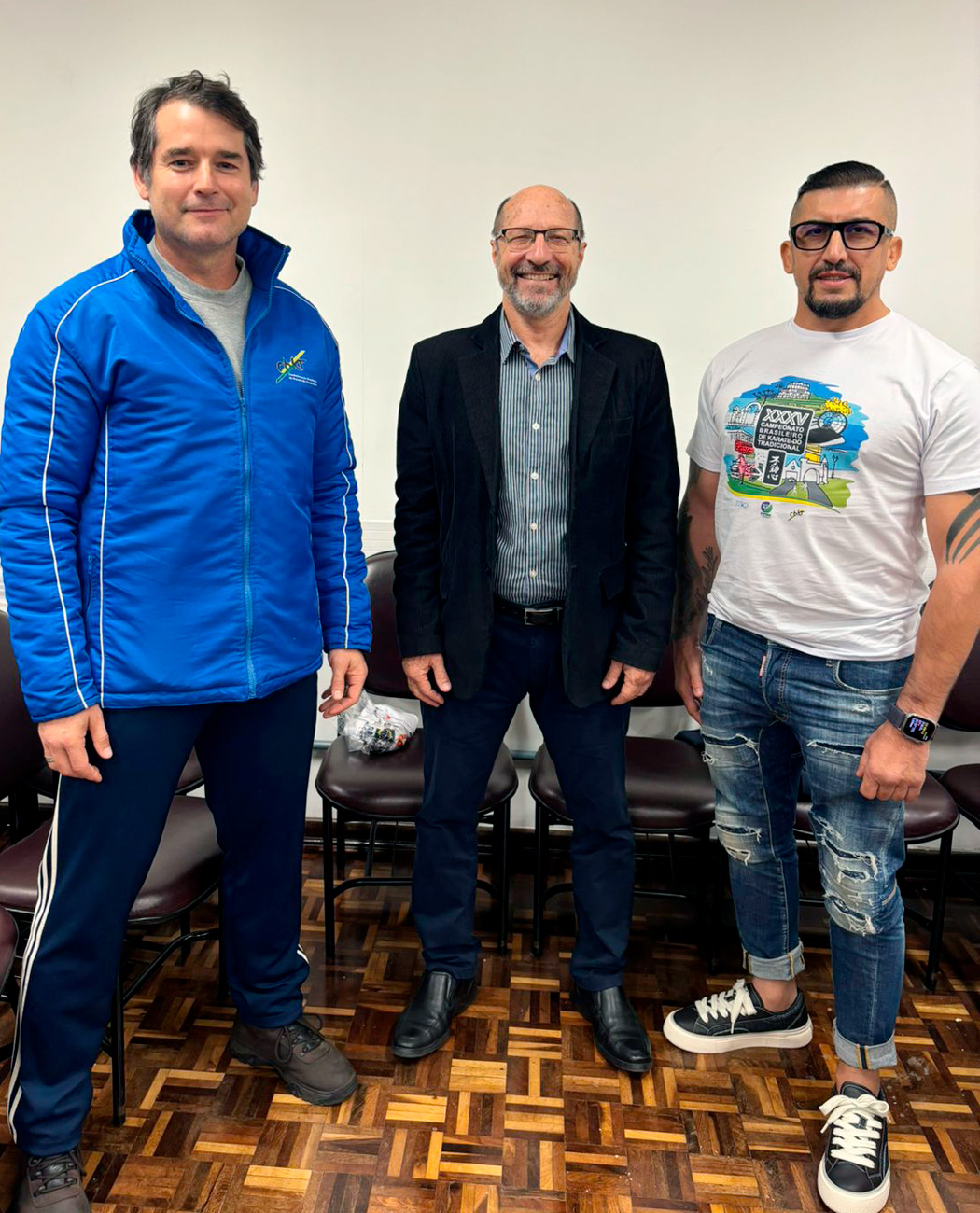
Ricardo Buzzi, coach of the Brazilian national team, Gilberto Gaertner, ITKF chairman, and Cornel Musat, vice-president of the Romanian Traditional Karate Federation, during a recent technical visit to Paraná State © Archive
This doesn’t mean everything has been easy. “We have athletes from all over Brazil, and coordinating everyone, especially for in-person training sessions, is quite complicated,” Buzzi says. “From Manaus to Porto Alegre, for example, it’s 5,000 km, and this distance generates significant costs.”
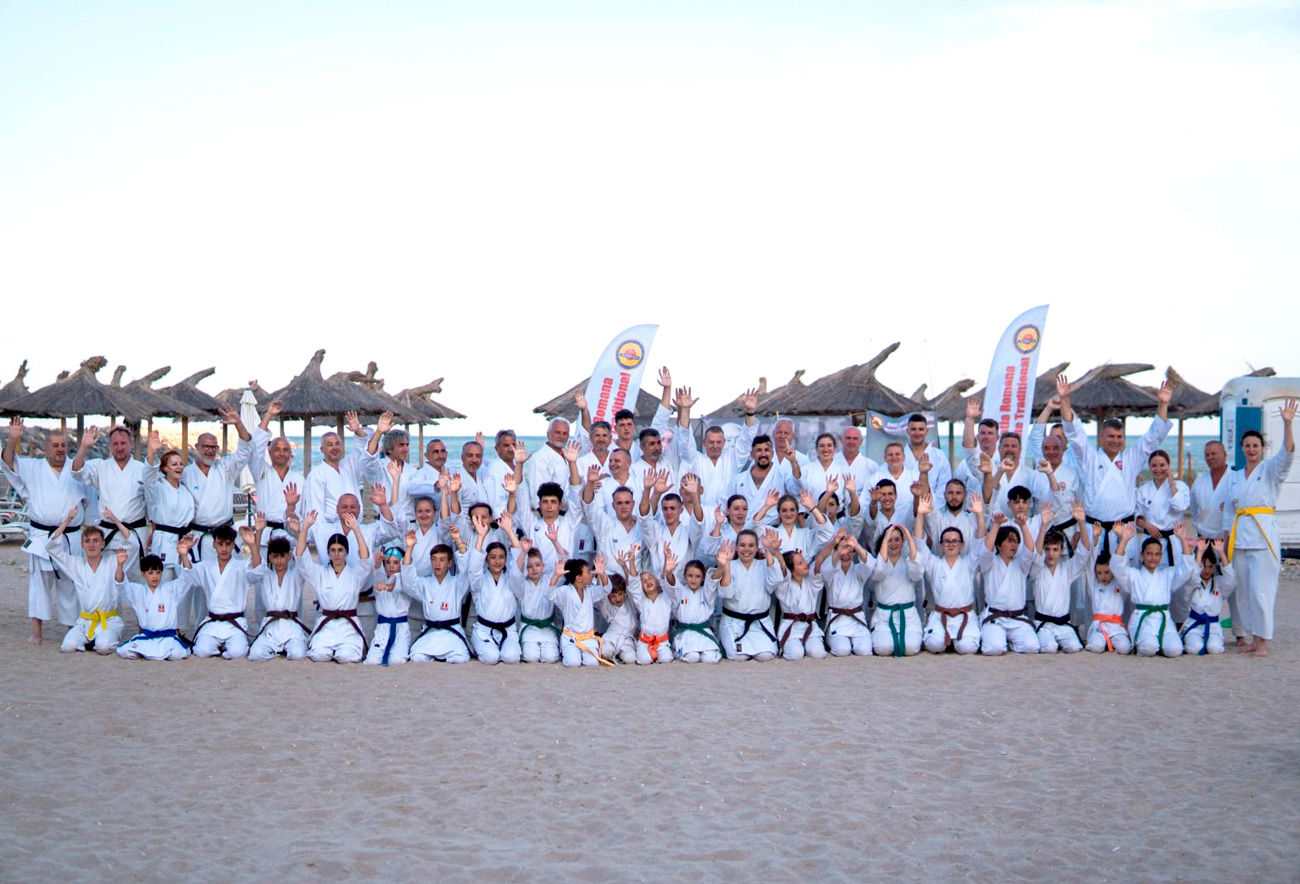
Training camp of the Romanian national team © Archive
The internet and other available resources helped organize the group, but the training part is always more complicated. “The challenge is always this geography issue, the distance to bring people together, although the teams are formed in the states through qualifications in Brazilian, Pan-American, and other championships. But the Brazilian team manages to overcome that, and we will arrive strong and ready for the World Championship,” concludes Buzzi.
In the view of Mohamed Fawzy (Roku-dan / 6th Dan ITKF), technical director of the Egyptian team, success means embodying the principles of traditional karate education, with a special focus on shiai to measure the athletes’ progress. The Egyptian team achieved second place in the 2022 World Championship in Slovenia.
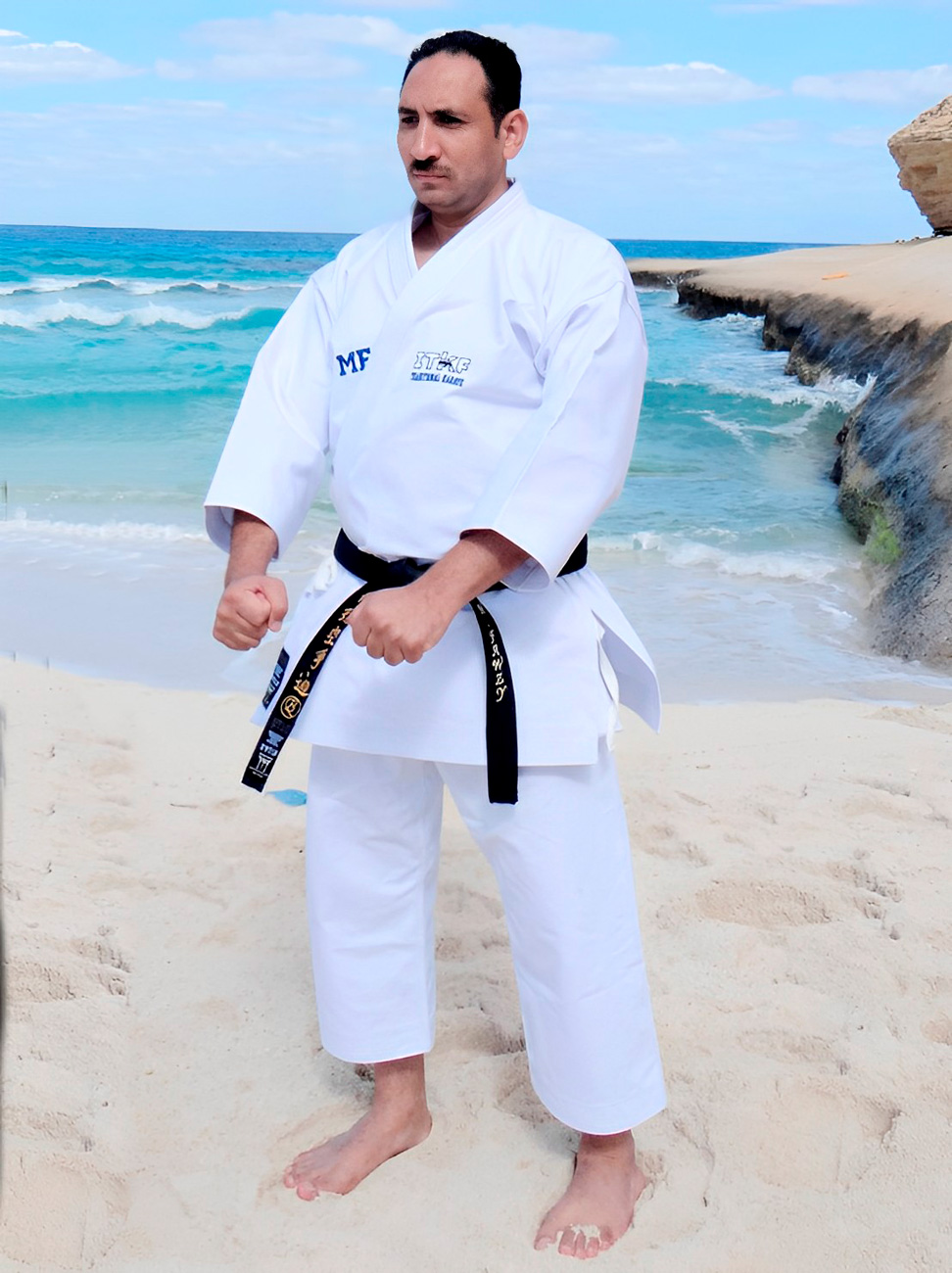
Mohamed Fawzy, technical director of the Egyptian national team © Archive
To prepare for the tournament, all athletes from the Egyptian team underwent an intensive training camp lasting over a month. “This comprehensive program addresses physical, technical, and psychological aspects, ensuring thorough and complete preparation for the challenges they will face in Vila do Conde,” reports Fawzy.
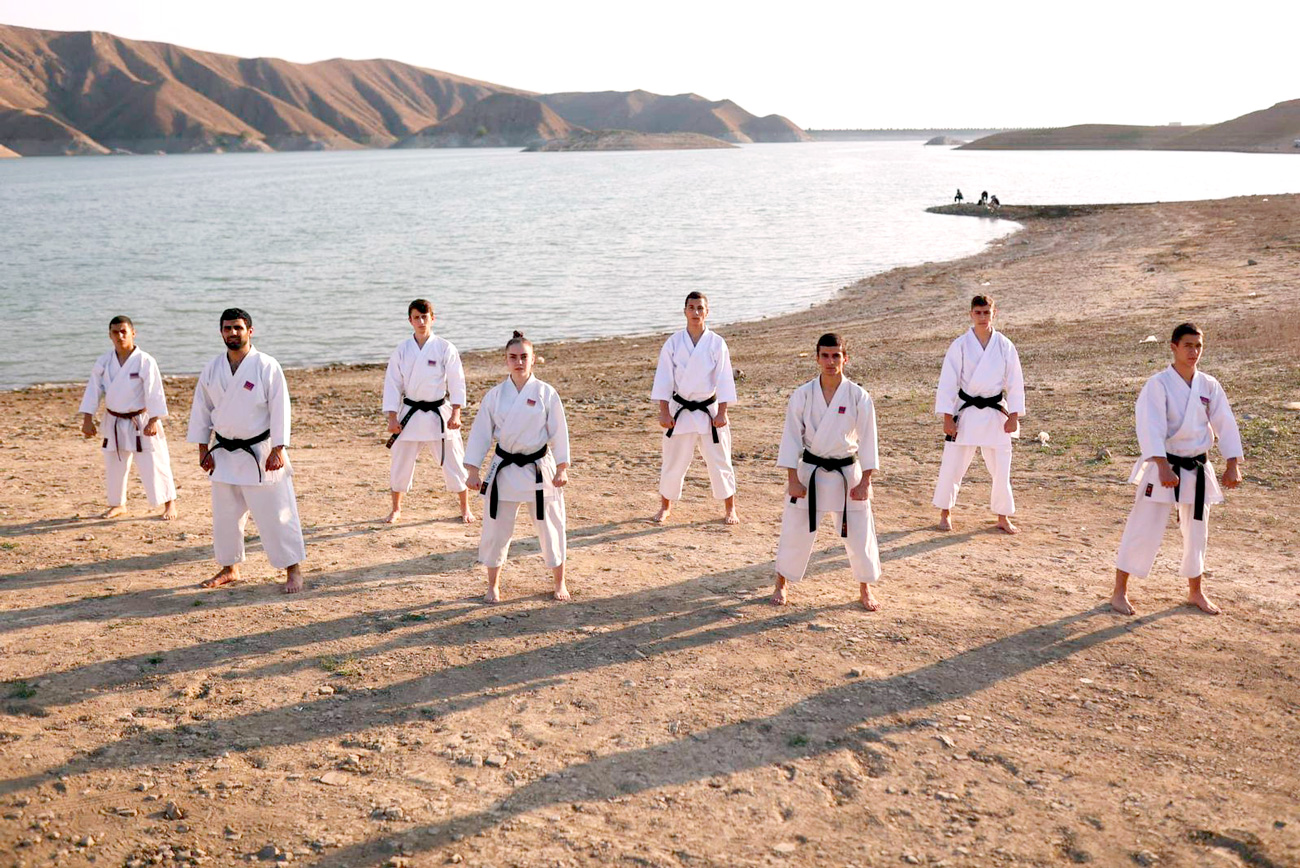
Black belt training session of the Armenian national team © Archive
The main logistical and organizational challenges for the Egyptian team were coordinating the schedules of all athletes, organizing suitable training facilities, and ensuring that all necessary resources and support staff were available for the intensive training camp. Additionally, the visa and hotel reservation processes were very difficult.
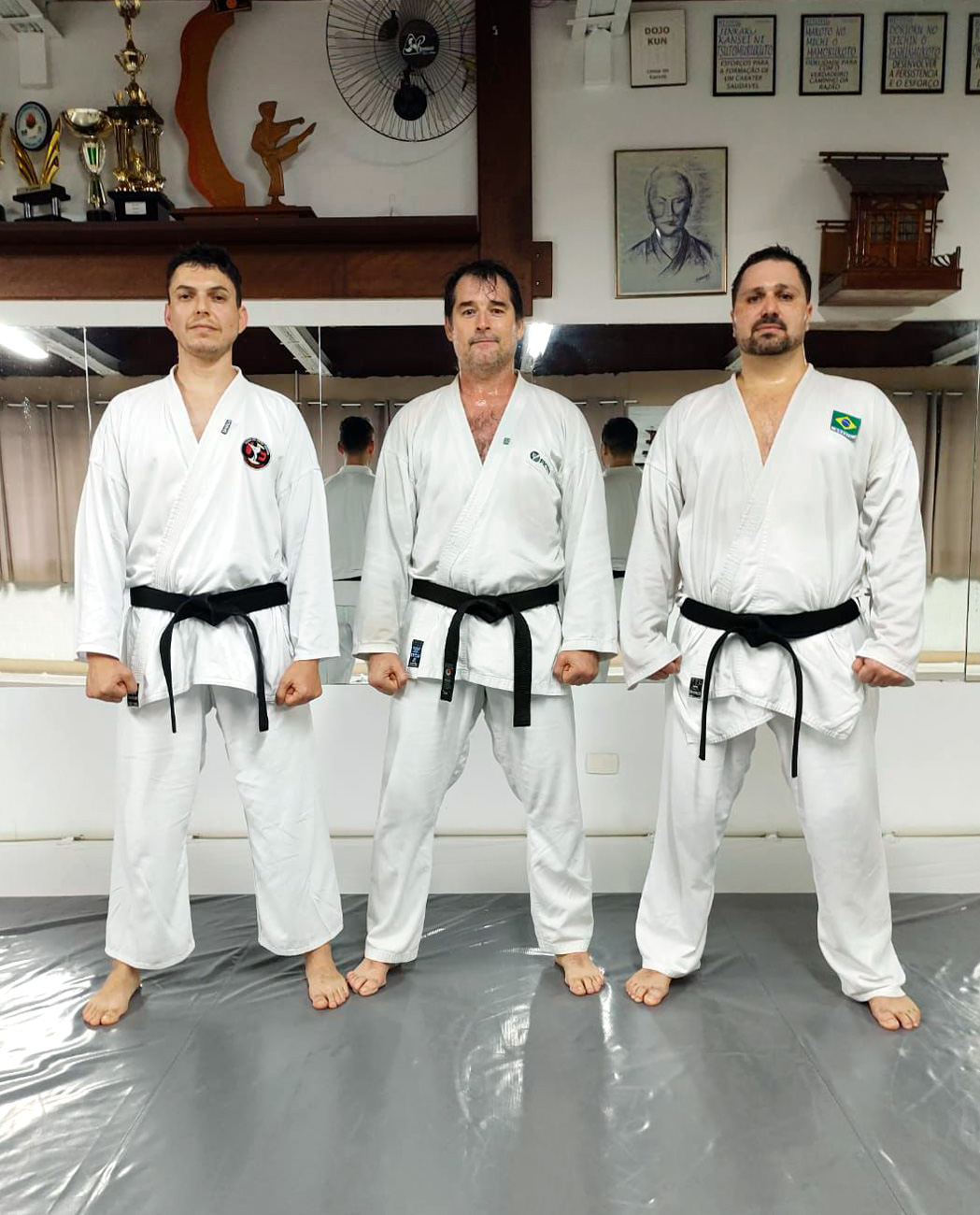
Jean Laure, president of FKTPr, Ricardo Buzzi, coach of the Brazilian national team, and Vinicius Santana Pinto, ITKF director of innovation, leading a training session for the Brazilian national team © Archive
“We overcame these challenges through careful planning and scheduling the training program well in advance, securing appropriate facilities, and organizing the technical and support staff to provide the necessary support for the athletes,” explains Fawzy. “But so far, we are still trying to obtain entry visas to Portugal, with the indispensable support of the ITKF family.”
“Romania has always been a powerhouse in international karate, so of course we always aim for one of the top three positions,” assures Cornel Musat (Shichi-dan / 7th Dan), coach of the national team. “I see determination, desire, and quality in our athletes, so it will be a matter of who performs best. It will be a tight competition with a lot of pressure, but that’s what brings greatness.”
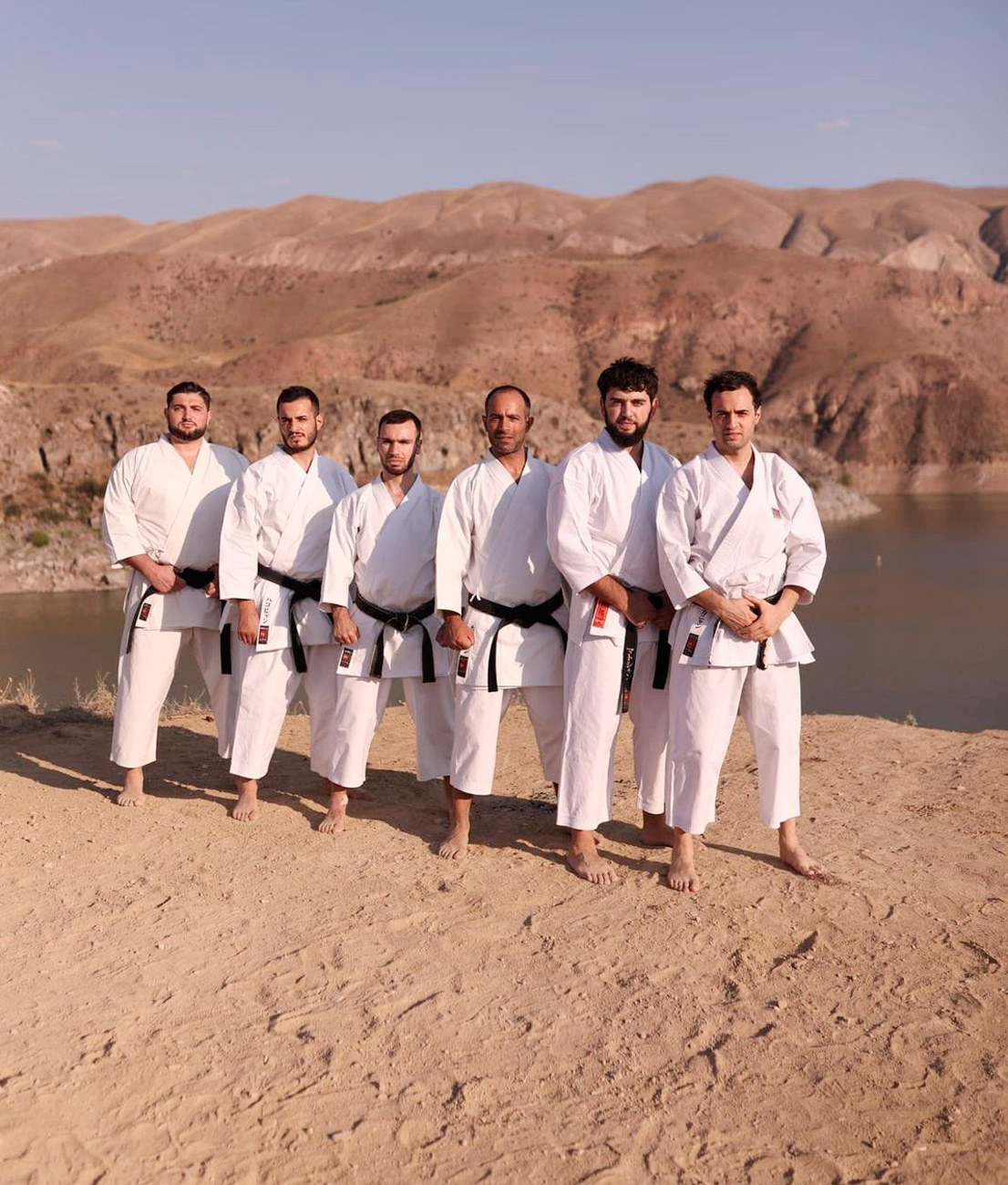
Black belt training session of the Armenian national team © Archive
Musat, the iconic eight-time world champion and vice-president of the Romanian Traditional Karate Federation (FRKT), says his team has just completed its annual summer training camp on the shores of the Black Sea.
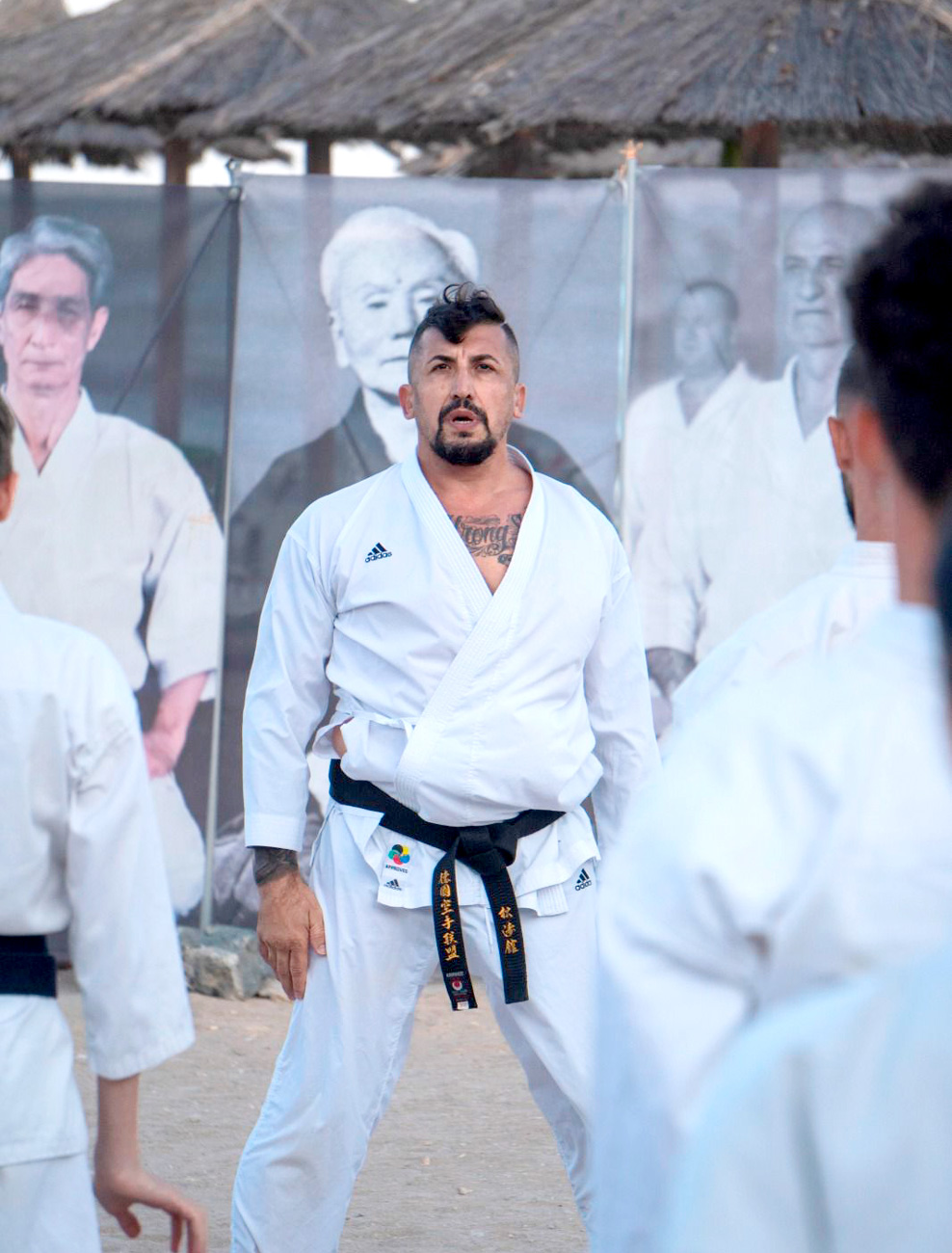
Cornel Musat leading the Romanian team’s training session © Archive
“It’s a tradition for our organization and an excellent opportunity to evaluate and prepare the competitors, as well as a great experience for team bonding, getting us ready for the big event.” The final roster of the Romanian national team will be determined on the 15th of this month, after the national championship finals. Musat believes there will be more than 100 athletes representing Romania.
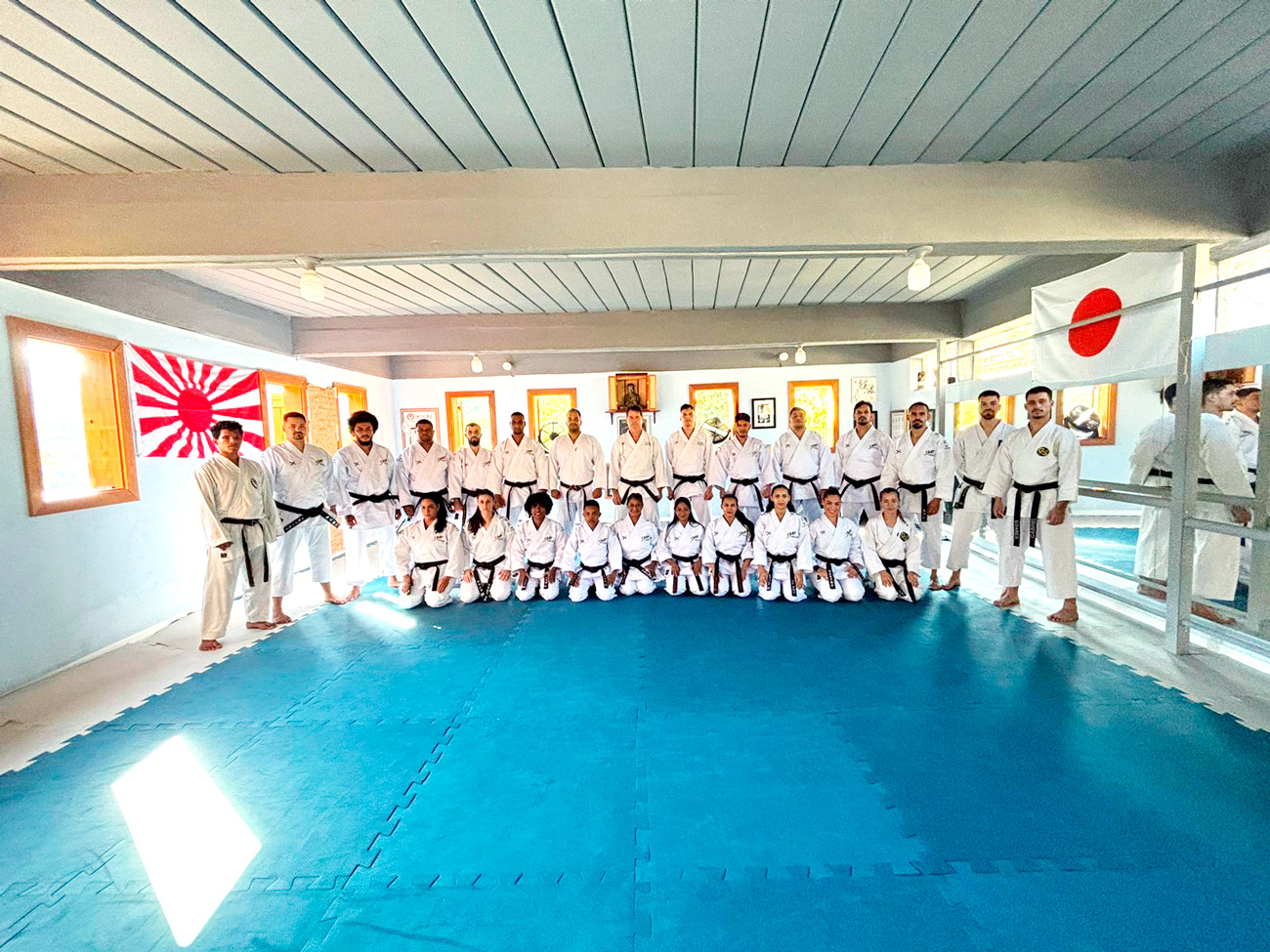
Brazilian national team training with athletes from Rio de Janeiro © Juliana de Menezes Lopes / IGKRJ
He did not mention logistical problems, as Portugal is part of the European Union, which facilitates documentation. “The only inconvenience was securing flights at suitable times and reasonable prices for our large team, but it’s well worth it for a world championship that will certainly make history.”
“Our goal is not only to compete but to leave a lasting impact through our discipline, resilience, and commitment to excellence. Above all, I believe that our athletes will uphold the honor and pride of Armenia on the world stage, demonstrating the values of traditional karate.” These are the words of Suren Mathevosyan (Roku-dan / 6th Dan), founding president of the Traditional Karate-Do Federation of Armenia (FKTA) and ITKF technical director for the Asia region.
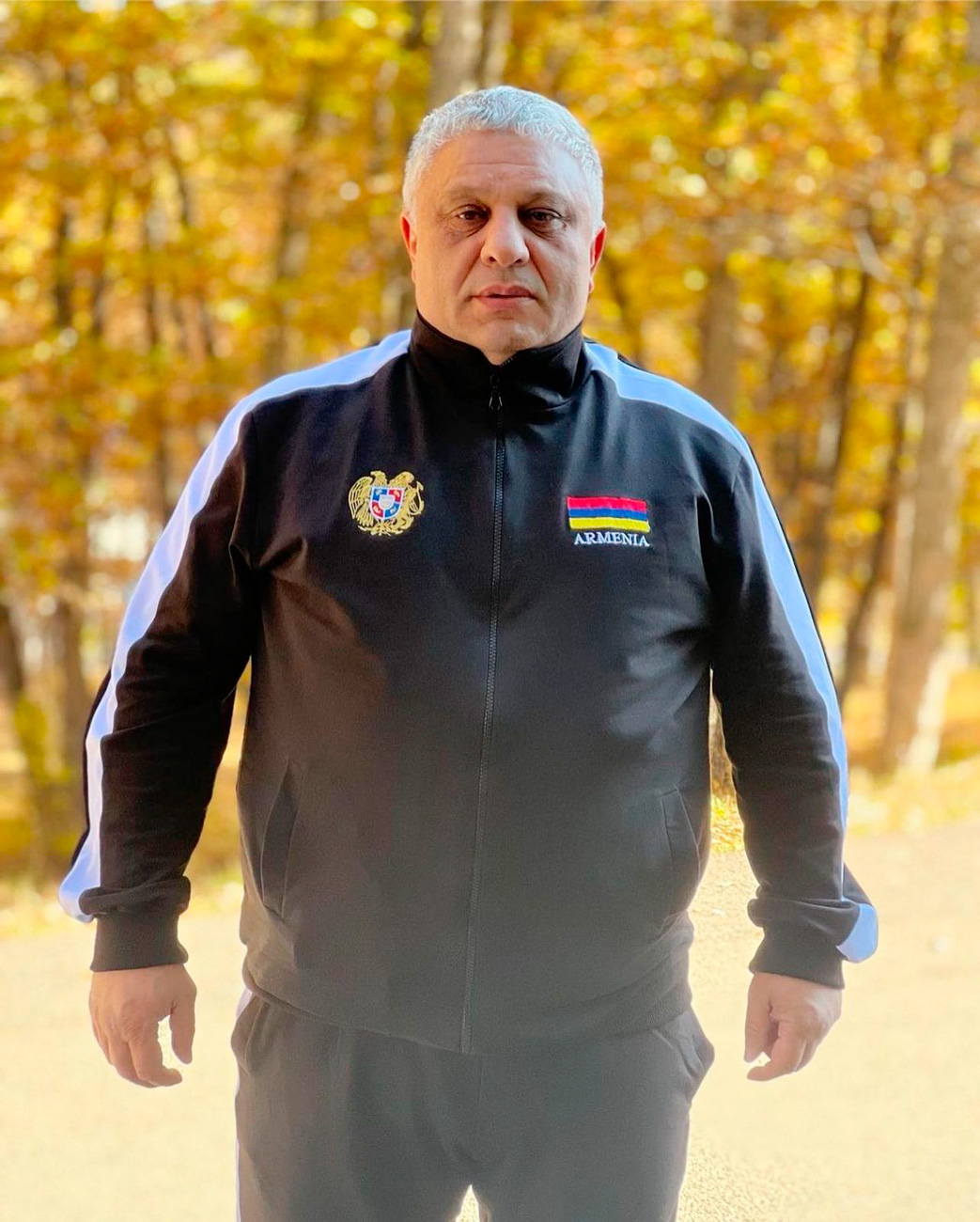
Suren Mathevosyan, ITKF technical director for the Asia region
Mathevosyan’s expectations encompass both individual and collective growth. While he acknowledges the significant challenges his team will face, he is confident that the athletes’ rigorous preparation and dedication will lead to strong results. The Armenian delegation consists of 23 athletes (including five children participating in the European Children’s Cup), two international referees, five federation officials, and Mathevosyan himself.
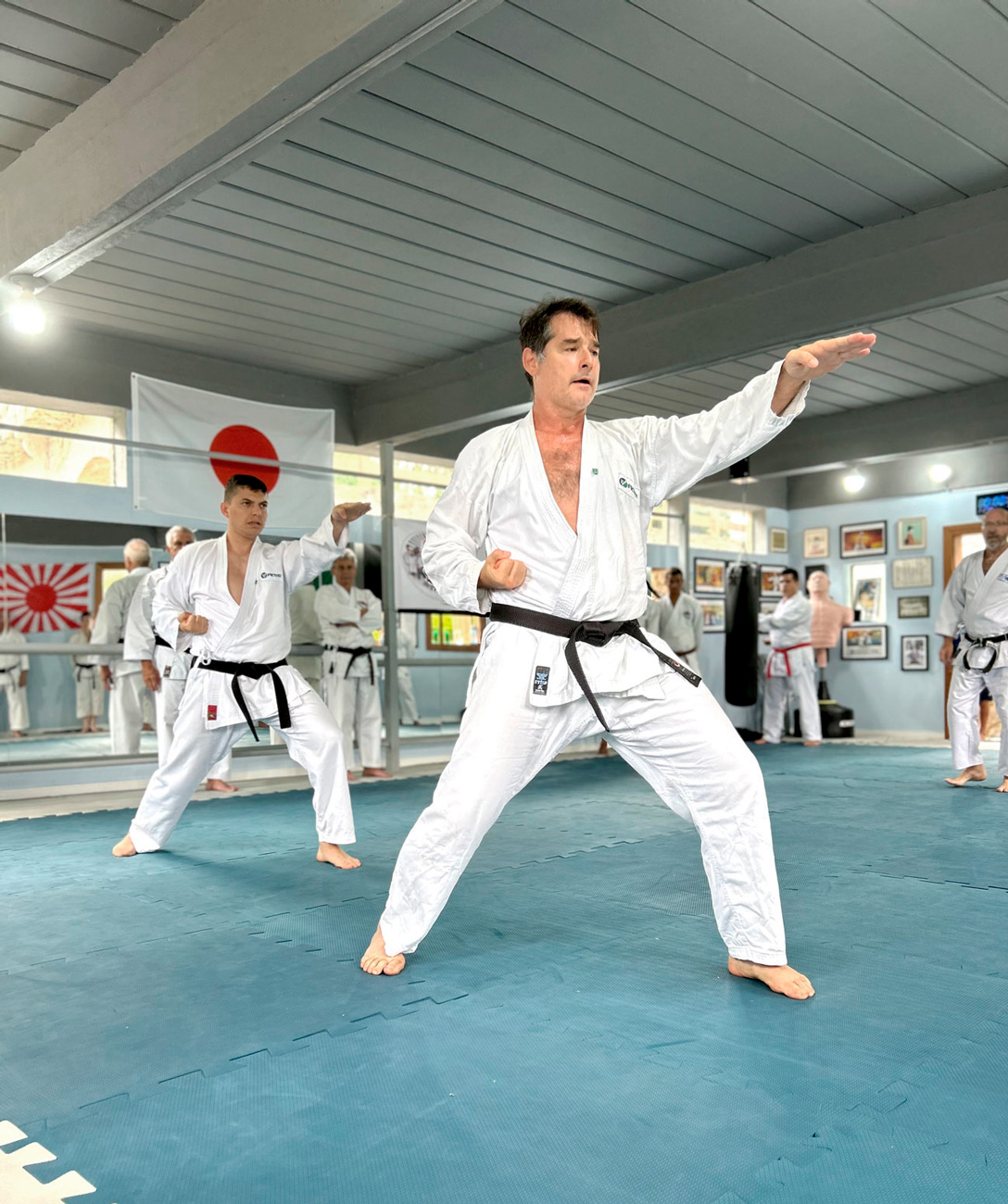
Ricardo Buzzi, coach of the Brazilian national team, and Jean Eduardo, captain of the national team, during training in Rio de Janeiro © Juliana de Menezes Lopes / IGKRJ
“Our athletes have been preparing for the world championship by adhering to the core principles that define traditional karate: discipline, consistency, and dedication. The commitment to hard work and continuous improvement is central to everything we do, and our athletes are determined to reach their goals by refining the skills they already possess, with an even greater emphasis on perseverance and excellence,” continues Mathevosyan.
“Everyone seeks victory, but the principles and values of traditional karate must always prevail.”
For the Armenian leader, the most significant challenges his federation constantly faces and overcomes are financial limitations. “Armenia is not a wealthy country, and we receive no external financial support. Everything we achieve is through our own means. Despite this, we ensure that most of our athletes can participate in the world championship at no personal cost, especially those who have shown exceptional results throughout the year.”

03 de março de 2026
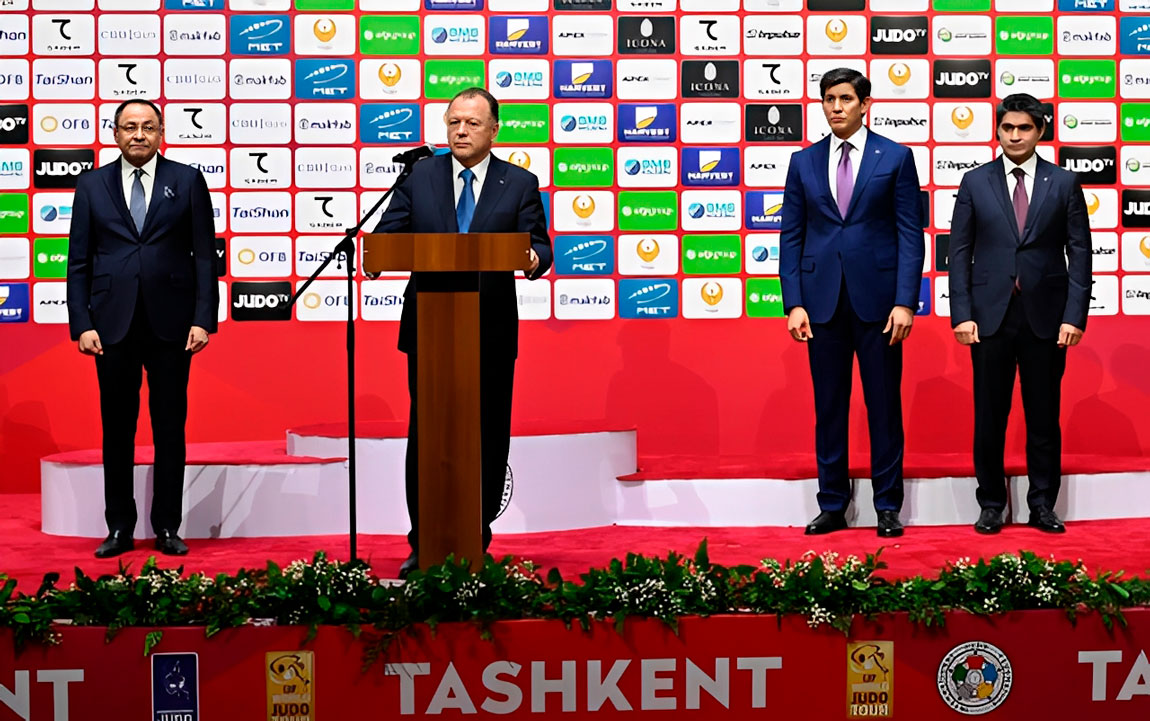
28 de fevereiro de 2026
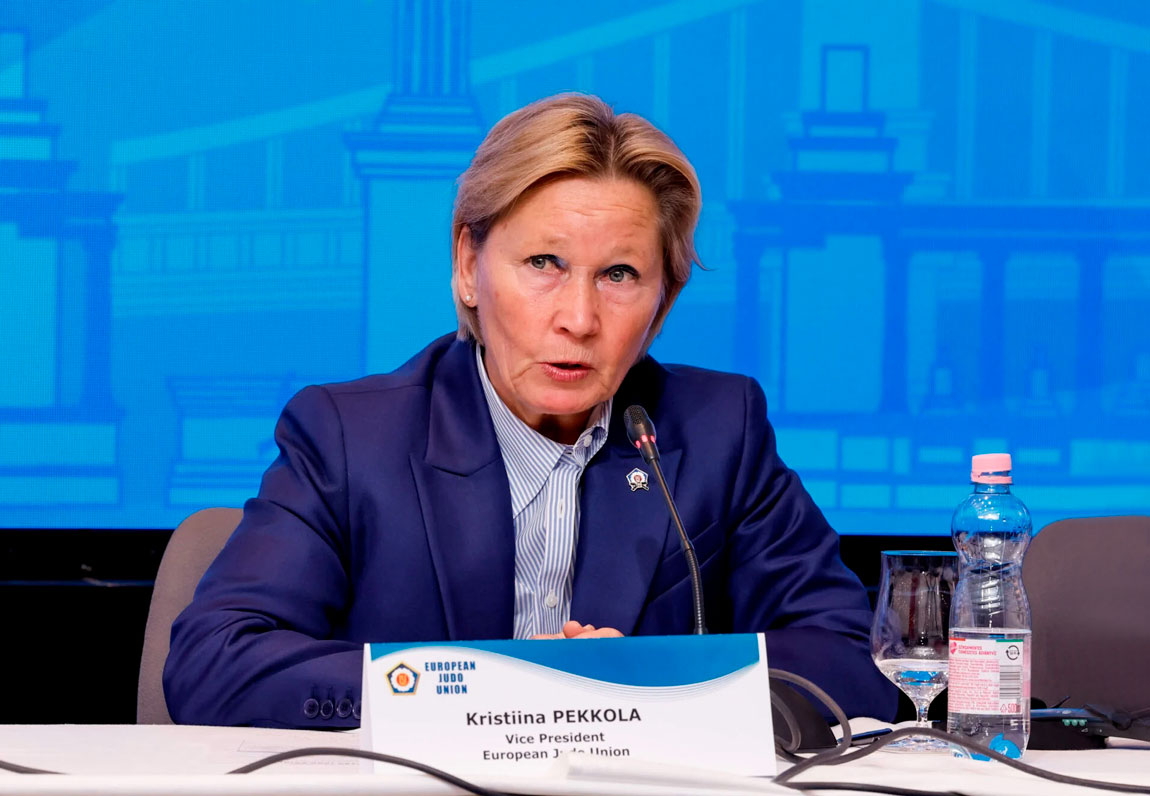
27 de fevereiro de 2026